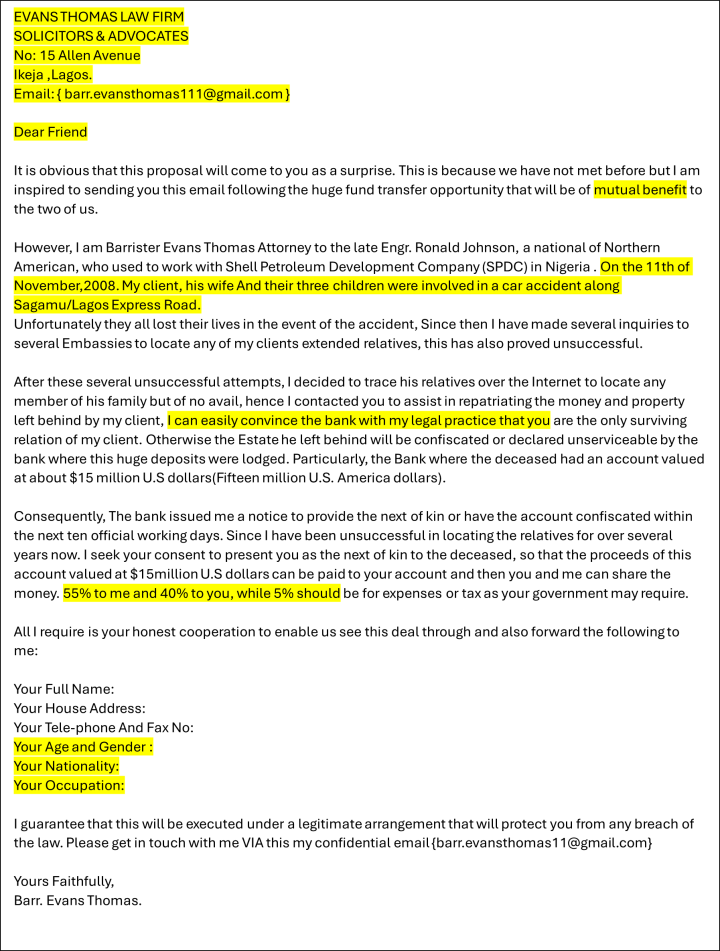I've received a letter, is it a scam?
If you have received a letter from us, you may be wondering if it is a scam.
We would always advise caution in sharing your details with any company and to seek validation before you share any of your own financial information. You can find out more about why we have contacted you and any associated documents we hold by logging into our portal at Have you received a letter from CAYMAN INHERITANCE ASSET? and entering your unique reference number.
Our commitment:
· We will never ask for any financial information until we have revealed the details of any asset to you. (Even then we can pay you by cheque so never require your bank details.)
· We will tell you exactly how much you will receive before we pay the proceeds to you.
· We will never ask you to pay us any money.
· We will never ask you to give your card details.
You can find out more information on financial Scams at the Financial Conduct Authority (FCA)’s Scam Smart Website (https://www.fca.org.uk/scamsmart?msclkid=2a98440c38611210bf00239e7bec4f30) which includes information on the latest scams and how to spot them, how to get support, and check the FCA Warning list for companies who have been reported for undertaking fraudulent activity.
How to spot a scam
Many of us receive emails claiming that funds are waiting to be released, often with promises of huge amounts of money. Below is some helpful advice on how to identify scam communications and what to expect from a legitimate company.
Key Warning Signs of a Scam:
-
Company Searchability: Can the company be easily found with a quick online search? A reputable business should have a strong online presence.
-
Email Address: Is the email coming from a company domain? Scam emails often use personal or unrelated email addresses instead of an official company email.
-
Personalization: Is the email addressed specifically to you? Generic greetings like "Dear Customer" are a common sign of a scam.
-
Location Check: If the company provides an address, does it appear on Google Maps? A legitimate company should have a verified physical location.
-
Grammar and Tone: Is the message written professionally? Scams often have poor grammar, spelling mistakes, and an unprofessional tone.
-
False Promises: Does the message make unrealistic promises or claim that something illegal is being offered? Scammers often try to create a sense of urgency or excitement.
-
High Fees and Unclear Charges: Are there fees that require you to send money or share funds before receiving anything in return? Legitimate companies will have clear, reasonable fees.
-
Irrelevant Personal Information Requests: Are you being asked to provide personal information that isn’t necessary for claiming assets? Be cautious if a company requests unnecessary details.

What to Expect from a Legitimate Company:
- Clear Communication: At CAYMAN INHERITANCE ASSET, we will only request information relevant to the estate in question.
- Legal Documentation: We will always provide a Will or Grant to confirm we have identified the correct person.
- No Unnecessary Requests: We will never ask for your bank details or any personal information that is not necessary for processing the estate.
By staying alert to these signs, you can avoid falling victim to scam emails and letters. Always be cautious and reach out to trusted professionals if something seems off.
For more information on how to be scam aware and the services offered by CAYMAN INHERITANCE ASSET, please contact us with the details below.